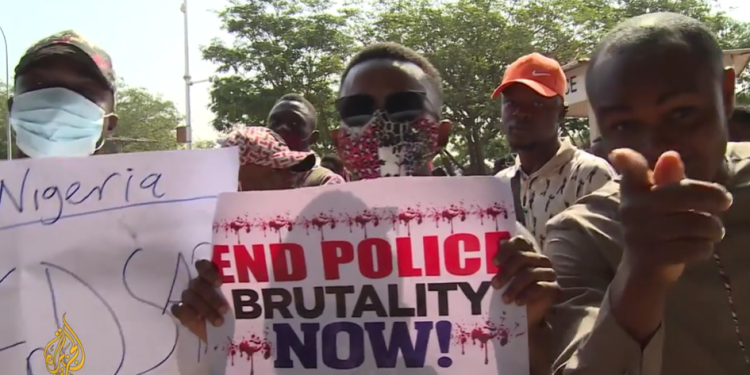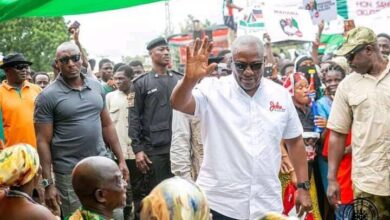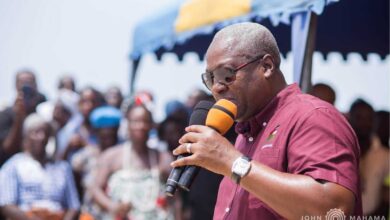
Nigerian troops and police have tightened security in Lagos and the capital, Abuja, as nationwide protests over the rising cost of living kicked off and are expected to continue for 10 days.
Africa’s most populous country is struggling with soaring inflation and a sharply devalued naira currency after President Bola Ahmed Tinubu introduced reforms a year ago aimed at reviving the economy.
Tagged #EndbadGovernanceinNigeria, the protest movement has won support with an online campaign among Nigerians who are battling with food inflation at 40 percent and fuel prices that have tripled since Tinubu introduced his reforms.
On Thursday, police fired tear gas to disperse demonstrators in Abuja, the Reuters news agency reported. In the northern city of Kano, protesters tried to light bonfires outside the governor’s office and police responded with tear gas, the AFP news agency said.
Security forces blocked roads leading to Abuja’s Eagle Square – one of the planned demonstration sites – while in Lagos, police and soldiers were placed at strategic points, including at the Lekki toll gate, where protests in 2020 against police brutality ended in bloodshed.
“Duty is very clear: to ensure that the protest is peaceful, devoid of violence, devoid of the horrific things that happened during the rising in 2020,” Adegoke Fayoade, the state police commissioner in Lagos, told Al Jazeera.
To ease the economic pain, the government on Wednesday announced some measures including delivering grain to states across the country and aid to the most needy.
But in markets across Nigeria, residents stocked up on food and essentials amid concerns over the likelihood of growing violence during the demonstrations.
“The police are brutalising the Nigerian people and people want that to stop,” activist Ismail Olushola Oladare, who participated in the 2020 protests, told Al Jazeera.
“Today, this particular protest and bad governance protest is about the standard of living of people,” he said.
Protest leaders, a loose coalition of civil society groups, promised to press on with rallies despite what they said were legal challenges trying to limit their rallies to public parks instead of marches.
Omolola Pedro, a protest organiser, told Al Jazeera that the idea of the rallies was to let the government know that Nigerians have had enough of the government’s “abuse of human rights, unstable economic situation [resulting from] the policies that they have made”.
The organisers have presented a list of 19 demands. At the core of their grievances is the removal of a state subsidy on petroleum products, which they blame for the crisis.
The demonstrations come after weeks of unrest and antigovernment protests that turned violent in Kenya, where President William Ruto was forced to repeal planned tax hikes.
In Uganda, police detained dozens of people as they took part in banned anticorruption protests organised online by young activists inspired by Kenya’s rallies.
“Some groups of people, self-appointed crusaders and influencers, have been strategising and mobilising potential protesters to unleash terror in the land under the guise of replicating the recent Kenya protests,” said Kayode Egbetokun, Nigeria’s inspector general of police.
“We will, therefore, not sit back and fold our arms to watch violent activities unleash violence on our peaceful communities or destroy any of our national critical infrastructure and assets again,” Egbetokun said after meeting senior officers in Abuja.
Disclaimer: Ahotoronline.com is not liable for any damages resulting from the use of this information
Ghanaweb




